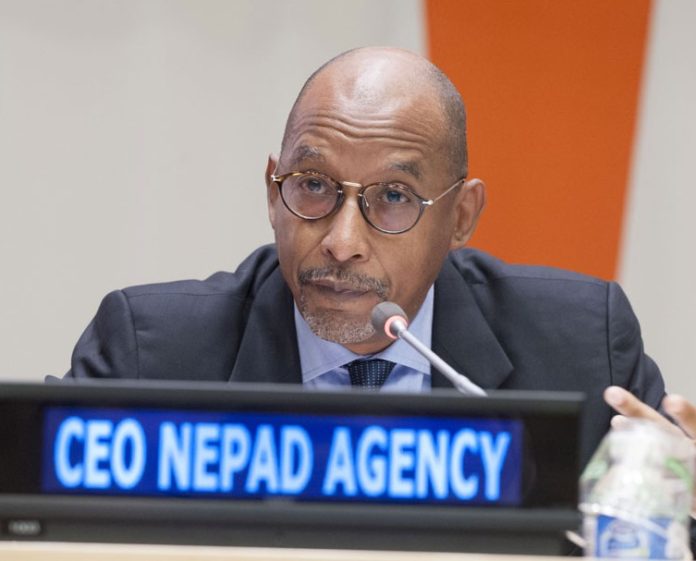By Nina Mitch
DR Congo: The Tokyo Nutrition for Growth Summit 2021 has ended with partner organizations charged to focus on food and nutrition security away from the attention on food security alone.
The high-level side event organized by Japan International Cooperation Agency (JICA) was under the theme, ‘Human Security and Nutrition -addressing the double burden of malnutrition through the realization of collective impact’.
Although the global community and countries have taken various actions to end malnutrition in all its forms prevailing in the world, international organizations say it’s hard to achieve the Sustainable Development Goals (SDG) Two.
The SDG Goals 2, aims to eradicate hunger and ensure access by all people to safe, nutritious, and sufficient food all year round by 2030.
According to Chief Executive Officer for African Union Development Agency (AUDA-NEPAD), Dr. Ibrahim Assane Mayaki, 150million children under five years are stunted, 46million are wasted and 49milliion are overweight. Meanwhile, more than 40 percent of old men and women are obese.
He, therefore, observes it is about time the campaign narrative is centered on food and nutrition security rather than food security alone.
“We are no longer looking at food security but food and nutrition security”.
Dr. Mayaki also used the opportunity to amplify the global school feeding coalition for nutrition which some 50 partners have signed.
“Our school feeding programme is one of the best social protection interventions that protect vulnerable communities to at least have one meal in a day, but these efforts can only be sustained if we work together in a coherent and cohesive manner”.
Director-General of the Food and Agriculture Organisation (FAO), Dr. Qu Dongyu, said how the summit will strengthen the partnership and enhance smart commitment to growth.
“We should walk the talk not only talk.”

UNICEF Executive Director, Henrietta Fore mentioned that childhood overweight is increasing though exclusive breastfeeding is 80million higher today than it was 21 years.
“We emphasize our commitment to ensure the right nutrition of every child everywhere in the world.
We will strive and improve the quality of the food environment – where they eat, meet, and play – putting an end to the marketing of unhealthy food.”
According to the World Bank Group, 70 percent of people suffering from obesity live in developing countries. It projects that some 30 million children will become acutely malnourished by end of 2022.
Vice President of human development at the World Bank Group, Mamta Murthi, said that nutrition is fundamental to building human capital and achieving human security.
“This is a crisis we can tackle because potential solutions exist. We believe that government leadership and the right support, change can happen and happen faster.”
President of Japan International Cooperation Agency (JICA), Shinichi Kitaoka,
Based on human security, global development partners and JICA share their commitments of nutrition actions for low and middle-income countries and call for the collaboration with other partners on eliminating malnutrition in all its forms, aiming for a world where life, livelihood, and human dignity of people living in developing countries are protected and all people can live a humane life.
President for Japan International Cooperation Agency (JICA), Shinichi Kitaoka, said partner organizations must leverage on each other’s strength in order to achieve the global nutrition agenda.
“…not all partner organizations conduct the same activities but rather they focus their activities where they have a comparative advantage, recognizing each other’s strength will help bring about the best outcomes”.
The Government of Japan hosted the Nutrition for Growth (N4G) Summit in Tokyo in conjunction with the Tokyo Olympics and Paralympics.
This Summit is the successor to the Nutrition Summit in London in 2013 and the Rio Nutrition Summit in 2016 and is an invaluable event for all stakeholders to make commitments for nutrition.














